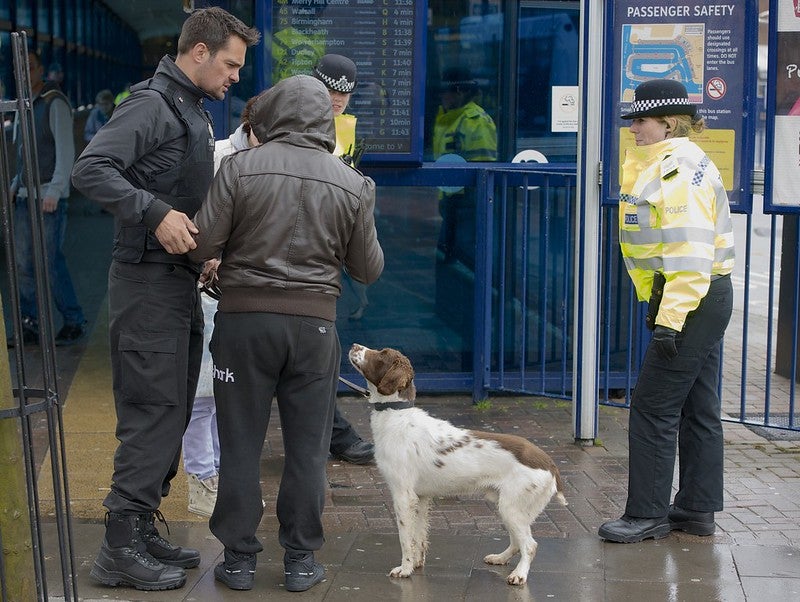As countries begin to open for travel and tourism in the wake of COVID lockdowns, cannabis users may be curious if they can bring their favourite edibles along for the journey. Whether you use weed for recreational or medical purposes, it’s natural to have questions about travelling with your cannabis products.
If you’re wondering, “Can you bring edibles on a domestic flight in Canada?” or “Can you fly with weed in Canada?” You’re in luck! We’ve got the answers you’re looking for and are here to provide you with the most up-to-date and accurate information on travelling with cannabis within Canada.
Can You Travel with Edibles?
Unfortunately, it’s currently ILLEGAL to travel with edibles, cannabis concentrates, topicals, or extracts, even if they’re sealed and purchased from a reputable, provincially sanctioned dispensary.
When flying within Canada, you can only bring dried flowers or pre-rolled joints in sealed packaging, including CBD oils. Canada’s laws and regulations for other forms of cannabis products are still being developed, so it’s possible that these restrictions may change in the future.
Until then, it’s important to know the current rules and regulations regarding the transportation of cannabis within Canada.
Travelling Domestically
You can bring cannabis (but only a small amount) for personal use if you’re travelling within Canada. Specifically, you can bring up to 30 grams of cannabis with you as long as you’re flying within Canadian borders. This can be in the form of cannabis flowers or cannabis oil products. You can use this online calculator so you won’t go beyond the legal limit.
However, there are also limitations when it comes to oils. If you carry cannabis oil for medicinal purposes and the quantity exceeds 100 ml, you can bring it in your carry-on luggage. But you’ll need to present it to the security officer at the airport for inspection before boarding your flight.
If the amount of cannabis oil is 100 ml or less, it should be placed in a clear, 1-litre bag with other liquids, aerosols, and gels in your carry-on luggage.
Just remember that you still have to follow the laws of your home province and the province you’re going to. This includes the legal age, amount, and packaging of cannabis products.
Before we get into the specifics, here are a few quick facts about travelling with marijuana in Canada:
- Always follow provincial and local guidelines.
- Check airline regulations about what you can and can’t bring on the plane. This includes both carry-on items and checked baggage.
- Find out what the legal age is in the province you’re going to.
- Check that the packaging and size of your cannabis products meet the regulations for travel.
- Secure receipts of the products you bought at the dispensary (just in case).
Depending on your destination, the laws for legal cannabis consumption may be different from those in your home city. So try to familiarize yourself with the specific rules and restrictions of the place you’re visiting to ensure that you comply with the law.
And since regulations for travelling with weed can sometimes change, verify them before you go.
What Is the Legal Age for Cannabis in Canadian Provinces?
According to federal law, the United States has the same age limits for when it is legal to use marijuana. In Canada, however, cannabis laws vary from province to province. Each province and territory has its own age limit for the legal use of marijuana:
18 Years Old
- Alberta
- Yukon
19 Years Old
- British Columbia
- Manitoba
- Newfoundland and Labrador
- New Brunswick
- Northwest Territories
- Nova Scotia
- Nunavut
- Ontario
- Prince Edward Island
- Saskatchewan
21 Years Old
- Quebec
In other words, you can’t fly with weed in Canada if you’re 18 and travelling from Alberta to Manitoba, Ontario, or British Columbia, where the legal age is 19. You’ll be breaking the law as soon as the plane lands.
Also, remember that the legal age for consuming cannabis is not necessarily the same as the legal age for consuming alcohol. For example, in Quebec, the legal age for consuming marijuana was recently increased to 21. But the legal limit for drinking alcohol in this province is 18.
So keep that in mind when you travel with cannabis, especially when you need to cross provincial borders. Plan ahead and make sure you know and completely understand cannabis laws before you go.
Consequences of Travelling with Weed
Depending on how bad the offence is, travelling and carrying cannabis with you illegally can get you into a lot of trouble with the law. It’s a serious offence that would mean jail time and getting a criminal record. You can even get locked up for life!
Here are some ways you can break the law when travelling with weed:
- You’re below the legal age limit.
- Carrying weed across international borders.
- Carrying more cannabis than what is allowed by the law.
- Not abiding by the laws and regulations of local provinces.
- Carrying cannabis products into Canada (make sure to declare any products to border services if you get to a Canadian border).
Be Safe Than Sorry
Travelling with cannabis carries a certain level of risk. Imagine if you experienced unexpected events, such as severe weather conditions or aircraft issues. These can cause a flight to be rerouted and add an extra layer of complexity.
If you end up in a place with different cannabis laws, you could find yourself in a legal predicament. To avoid this, it’s generally safer to leave your cannabis products at home and purchase them from a local dispensary upon arrival.
Alternatively, you could consider ordering from an online dispensary like Budmail, which offers fast and convenient delivery of cannabis in Canada. This way, you can enjoy your trip without worrying about legal issues or the stress of travelling with cannabis.
Can Dogs Identify Edibles?
Cannabis edibles often have an odour that’s different from dried cannabis flowers. However, it’s still possible for trained dogs to identify edibles.
Trained dogs can be used to detect a wide range of substances, including illegal drugs and explosives. However, a dog’s ability to detect cannabis products can also vary.
Why? Because multiple variables can change a dog’s detection accuracy. These variables include:
- Weather
- Environment
- Packaging and its location
Even dog trainers don’t always agree on whether or not a drug dog needs extra training to find edibles and concentrates made from cannabis. Some trainers think additional training is necessary for dogs to detect cannabis edibles and other products, while others believe the dog’s incredible and powerful sense of smell is enough.

“Day 136 – Drugs dog in West Bromwich town centre” by West Midlands Police | CC BY 2.0
What About Other Forms of Cannabis?
If you’re planning a trip anywhere in Canada and want to bring some cannabis products along for the ride, why not make it an adventure by trying some of the best products available?
But first, make sure that the products you’ll purchase from any dispensary in Canada comply with the specific regulations of your destination and your mode of travel. So make sure to check the product’s volume, quantity, and packaging before buying it.
Here are a few options to consider for your next Canadian excursion:
- Oso Fuego – Premium Pre-Rolls Packs (0.5g)
- Moonrock Canada – Pre-Rolls (0.5g)
- Organic Polynesian Thin Mints (Oso Fuego) – AAAA Grade (14g)
- Ice Cream Cake Kush (Lucky Farms) – AAA Indica Dominant (28g)
- CBD Relief Roll-on (Vitalita) – With lavender, menthol, and frankincense (100mg CBD Isolate/10ml bottle)
Final Thoughts – Can You Bring Edibles on a Domestic Flight in Canada?
It’s currently illegal to bring cannabis edibles with you when travelling within Canada. However, new regulations are being developed, so it’s possible that edibles, concentrates, and other products will become legal for travel in the future. Until then, it’s best to leave all cannabis products at home before embarking on your trip.
However, you can bring up to 30 grams of cannabis in the form of flowers or cannabis oil products. If the amount of cannabis oil is 100 ml or less, it should be placed in a transparent 1-litre bag. But remember: bringing cannabis products outside of Canadian borders is still considered illegal.
FAQ
Can you fly with edibles across Canada?
Bringing cannabis across the Canadian border is against the law, whether you’re leaving or entering the country. No matter how much cannabis someone has, if they try to enter another country with it, they could be charged with a crime.
Can I pack edibles on a domestic flight?
Canada’s domestic flights don’t allow cannabis edibles. While Canada legalizes recreational cannabis, including edibles, transporting it is restricted.
Can airport security test edibles?
It’s possible for airport security to test cannabis edibles if they’re considered suspicious.
How do airport scanners detect edibles?
Even though airport scanners can detect the presence of food items, they’re unable to determine edibles precisely. In the scanner, cannabis edibles appear “orange” like other organic materials.
Can sniffer dogs smell edible gummies?
Drug dogs at airports may be able to detect the scent of cannabis edibles, such as gummies, if they’ve been trained to do so.
Can dogs identify edibles?
It’s possible for trained drug dogs to detect the presence of weed in edibles, even if they’re mixed with other ingredients like sugar or flour.
Can dogs smell vacuum sealed edibles?
Drug dogs will be able to detect substances in vacuum-sealed bags unless they have been sealed in laboratory-like conditions. It usually depends on the process used to package and seal cannabis edibles.
Do drug dogs bark when they find drugs?
When dogs smell drugs, they may bark or act aggressively to alert law enforcement officers. This can also involve pawing, straining, or digging in the area where the drugs are.
Sources:
Cannabis and the Border – https://www.canada.ca/en/services/health/campaigns/cannabis/border.html#a3
Calculate public possession limits for cannabis – https://health.canada.ca/en/health-canada/services/drugs-medication/cannabis/possession-limit-calculator.html
Cannabis (Marijuana) – https://www.catsa-acsta.gc.ca/en/item/cannabis-marijuana
Cannabis and International Travel – https://travel.gc.ca/travelling/cannabis-and-international-travel
